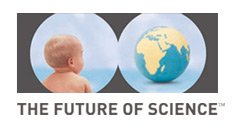Bruce German

Bruce German received his PhD from Cornell University, joined the faculty at the University of California, Davis in 1988, in 1997 was named the first John E. Kinsella Endowed Chair in Food, Nutrition and Health and is currently professor, at University of California, Davis and serves as senior scientific advisor at the Nestlé Research Center in Lausanne Switzerland and head of the Scientific Board of Lipomics Technologies Inc in California. His research interests include the structure and function of dietary lipids, the role of milk
components in food and health and the application of metabolic assessment to personalizing diet and health. The goal of his research is to build the knowledge necessary to improve human health through superior foods. Research projects directed to this goal are studying how individual human lipid metabolism responds to the chemical composition and structural organization of foods. Each person has slightly different responses to diet based on their genetics, their metabolism and their nutrition status. It is thus necessary to understand the molecular basis of these differences, how to recognize them and design food strategies to complement them. We are working on analytical strategies to enable individuals to monitor how their body reacts to various foods and to modify their consumption to maintain good health. With health targets established it is the equally important task of the research to understand how to provide superior choices in foods that integrate the compositional, structural and nutritional functionalities of biomaterials through bioguided food processes. The model being used of how to proceed is milk, the product of Darwinian selective pressure to produce a food to sustain and promote healthy infant mammals to be healthier. Milk is the only bio-material that has evolved for the purpose of nourishing growing mammals. Survival of offspring exerted a strong selective pressure on the biochemical evolution of lactation as a bioguided process. Just like evolution of any biological organism or system, the strong survive, which leads to the appearance of new traits that promote health, strength and ultimately survival. This evolutionary logic is the basis of the research program to discover physical, functional and nutritional properties of milk components and to apply these properties as principles to foods.
Bruce German and colleagues have published more than 200 papers on lipid and food structures, metabolites and functions and patented various applications of fatty-acids as bioactive and immunomodulatory agents.
The Future of Foods in a World of Personalized Health
Public health is advancing from a disease treatment paradigm to disease prevention and personalized health. This shift will impact the health care system and also all aspects of food and agriculture. Health care will profit from a system of personal assessment that measures and predicts health trajectories of individuals as subtle variations in their metabolic, physiologic and immunologic status. The fields of Nutrigenomics and Metabolomics are building a clearer understanding of the biological reality that humans are indeed different in their responses to diet. Health assessment will become an important part of routine care and industries that provide these services will increase in value and will align more closely with the food development industries. The greater information content of personal health will be managed by devices that are similar to those responsible for personal communications, entertainment and finance. Food, drug and lifestyle industries will take advantage of the greater personal knowledge of consumers to provide a wider range of products and services. Consumers will be able to choose alternatives that deliver solutions both deeper into health, i.e. more effective and safer solutions, and wider into more health values, than are currently available. The entire agricultural enterprise will share a coordinated role in improving human health through foods. This will require greater diversity of agricultural commodities, greater flexibility in food processing and greater education of consumers. The ultimate benefits to consumers and to the industries that supply their food products and services will be considerable.





